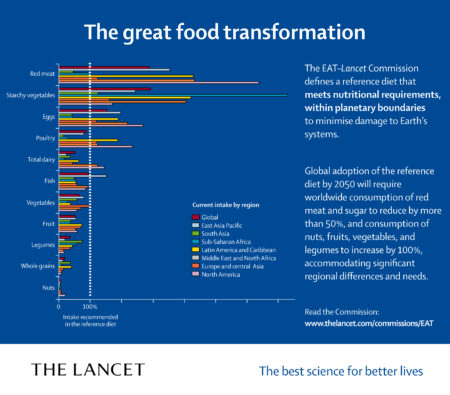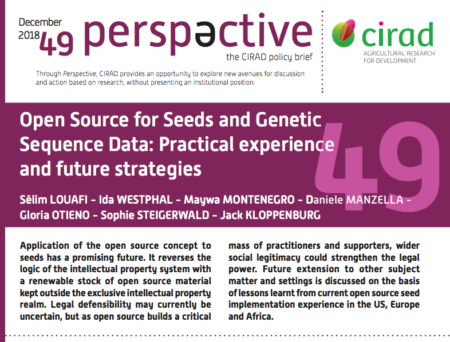- Origin and evolution of qingke barley in Tibet. Tibetan barley was introduced from the southwest.
- On the Origins and Dissemination of Domesticated Sorghum and Pearl Millet across Africa and into India: a View from the Butana Group of the Far Eastern Sahel. Sorghum and pearl millet got to India from Sudan. No word on whether they ever got to Tibet.
- Was there ever a Neolithic in the Neotropics? Plant familiarisation and biodiversity in the Amazon. Depends on how you define it.
- The earliest maize from San Marcos Tehuacán is a partial domesticate with genomic evidence of inbreeding. The earliest proto-maize was inbred.
- Evaluating Future Impacts of Climate Change on Traditional Mexican Maize Suitability and Indigenous Communities in Mexico. Landraces are going to lose half their area of suitability.
- Why could the coffee crop endure climate change and global warming to a greater extent than previously estimated? Because of carbon dioxide?
- Understanding and exploiting plant beneficial microbes. We’re going to need microbial consortia.
- Genetic analysis of a heritage variety collection. The Heritage Seed Library, in fact.
- Noemi Controls Production of Flavonoid Pigments and Fruit Acidity and Illustrates the Domestication Routes of Modern Citrus Varieties. In citron, limetta, sweet lime, lemon, and sweet orange, acidless phenotypes are associated with large deletions or insertions of retrotransposons in a single gene. Some of them go back a long way, and are associated with ritual use in Jewish culture.
- Introduction: Commoning the seeds: the future of agrobiodiversity and food security. Is there a way out of the current impasse? Maybe.
- Molecular and Genetic Bases of Fruit Firmness Variation in Blueberry—A Review. It’s still unclear whether firmness is a quantitative trait or monogenic.
- Hunter-gatherer genomes reveal diverse demographic trajectories following the rise of farming in East Africa. Hunter-gatherers were more inventive in Africa than in Europe in the face of agricultural expansion.
- Tropical Forage Legumes in India: Status and Scope for Sustaining Livestock Production. >3200 accessions conserved, >50 cultivars released.
- Conservation of crop genetic resources in Brazil in the context of the target 9 of the Global Strategy for Plant Conservation. A lot done, a lot still to do. CWR remain a gap.
- The Impacts of Climate and Social Changes on Cloudberry (Bakeapple) Picking: a Case Study from Southeastern Labrador. Social changes have been more significant, but for how long?
- Global wheat production with 1.5 and 2.0°C above pre‐industrial warming. Frequency of extreme low yields and variability will increase in hot places like India. Assuming no new varieties.
The meat and potatoes of the healthy diets debate
And here is the EAT-Lancet report in all its glory, as promised.

Give me a day or two to, ahem, digest it…
#EATLancet: Diet and food production must radically change to improve health and avoid potentially catastrophic damage to the planet @EATForum #foodcanfixit https://t.co/bcVFoSZNtm pic.twitter.com/lD5i0EOjA1
— The Lancet (@TheLancet) January 17, 2019
Feeding the nutrition debate
There’s a new set of weekly information nibbles in town:
Food Bytes is a weekly blog post of “nibbles” of information on all things food and nutrition science, policy and culture.
It’s a bit tricky to work it out, but the person behind this welcome addition to the discussion of nutrition and related issues is none other than Dr Jess Fanzo, co-chair of the Independent Expert Group of the Global Nutrition Report. Which gives me the opportunity to remind everyone in the words of Jess herself that said report came out a couple of months back :
The Global Nutrition Report was released this November. The news is not great. The report revealed that the global burden of malnutrition is unacceptably high and now affects every country in the world. But it also highlighted that if we act now, it is not too late to end malnutrition in all its forms. In fact, we have an unprecedented opportunity to do so. Steps have been taken in understanding and addressing malnutrition in all its forms, yet, the uncomfortable question is not so much why are things so bad, but why are things not better when we know so much more than before? Check it out and read all the deets.
This recommendation from the report is particularly relevant to us here:
Healthy diet policies and programmes are proving effective in countries, cities and communities but overall there is inadequate delivery of a holistic package of actions. The World Health Organization Global database on the Implementation of Nutrition Action (GINA) includes more than 1,000 national policies in 191 countries in support of healthy diets. For example, many countries have adopted sugar-sweetened beverage taxes in recent years, and these are proving effective, as are product reformulation policies. Large-scale food fortification is another area where there has been progress – but also exemplifies that there remain many barriers to change. A growing number of community and city-level initiatives are being implemented to improve diets and nutrition. New evidence is showing that intensive multi-level action can improve infant diets and reduce childhood obesity. Lessons could be scaled up from city to national level and shared through newly emerging international city networks. To date, however, few countries have implemented the comprehensive package of actions needed to significantly improve diets at the population level.
And since we’re on the subject, the EAT-Lancet Commission on Food, Planet, Health, which is attempting to reach a scientific consensus on what constitutes a healthy and sustainable diet, is delivering its first scientific review tomorrow. No doubt Jess will have something to say about it in due course.
But if this commentary from Frédéric Leroy is anything to go by, that consensus may be elusive, at least with regards to meat.
…the campaign, that will be launched in Oslo on January 17th, sounds like a powerful push to shift global diets by discouraging animal products. It is fuelled by large budgets and will be mediatised for a long time to come, scheduling more than 30 events around the world. But a closer look into its background reveals some perturbing elements. The danger is that the overstatement of certain concerns will result in an anti-livestock narrative, create a false impression of scientific consensus, and do more harm than good in a world in need of nutrient-rich meals and sustainable food systems.
Our opinion piece (with @docmartincohen) in @efa_news on the EAT-Lancet campaign and the way it approaches #livestock & animal food products.
Please read carefully and RT the article if you share our concerns.#ClimateFoodFacts #meat #dairyhttps://t.co/CHopcq0J9O
— Frédéric Leroy (@fleroy1974) January 12, 2019
Open seeds
We’ve blogged a couple of times about the Open Source Seed Initiative. The first time was when Jeremy interviewed Jack Kloppenburg, whose idea it was, back in 2013. The second yielded this little gem:
“It’s almost like a haiku,” says Irwin Goldman a professor of horticulture at UW-Madison and plant breeder, who has released two of his carrot varieties under the OSSI. “It basically says these seeds are free to use in any way you want. They can’t be legally protected. Enjoy them.”
Well, it turns out there’s a German version as well, as well as a project in east Africa. That’s according to a new policy brief from CIRAD.

It’s not quite a haiku, but here’s how the approach is described by Selim Louafi and his co-authors:
This approach is distinct from the public domain, whereby anyone has free and open access to the seeds, with the inevitable risk of free appropriation. Conversely, the open source approach is based on viral effects (i.e. the same conditions apply for any subsequent use) and non-proprietary assets: it reverses the intellectual property rights rationale by introducing negotiated terms of access and use with the aim of keeping seeds in a protected commons.
Long may it prosper.
LATER: And no, it isn’t lost on me that the past three posts on open source seeds, seed sector innovation and extension services could all have been mashed up into one mega-post on sustainable seed systems. But I do have a day job. Anyone want to give it a go?
Featured: Seed innovation
Susan Bragdon is not so sure about that OECD study about innovation in a consolidating seed sector:
Even if we were to miraculously all agree that these big guys are innovative that does not mean they are behaving in ways that promote or at least do not hurt the public welfare. Corporate concentration allows an exertion of power vertically up and down supply chains and not just in this sector. And unfortunately, powerful, concentrated corporate power increasingly set the rules of the game affecting any kind of true democratic accountability. And it is not just agriculture…
Indeed.
And extra points for spotting the link to the post on extension :)